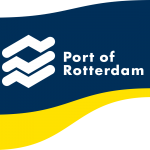The International Council on Clean Transportation (ICCT) announces the launch of FUMES 2 (Fugitive and Unburned Methane Emissions from Ships Part 2), an expanded follow-up to the groundbreaking FUMES study measuring methane emissions from ships fueled by liquefied natural gas (LNG) under real-world conditions. This two-year research initiative brings together an international consortium including Explicit ApS, the Netherlands Organization for Applied Scientific Research (TNO), Queen Mary University of London, and the Mærsk Mc-Kinney Møller Center for Zero Carbon Shipping (MMMCZCS).
Building on the successful quantification of methane slip from four-stroke marine engines in the first FUMES project, FUMES 2 will address critical knowledge gaps in understanding methane emissions from LNG engines, LNG carrier ships, and LNG cargo handling. The project comes at a crucial time as the use of LNG as a marine fuel continues to grow, and as the global LNG carrier fleet has nearly doubled from 400 ships in 2014 to more than 750 today, with an additional 300 vessels on order.
“With the rapid growth of LNG shipping, understanding the full scope of methane emissions is increasingly important for climate policy,” said Dr. Bryan Comer, Marine Program Director at the ICCT. “FUMES 2 will generate the most comprehensive dataset yet of real-world methane emissions from using and transporting LNG.”
The two-year project will employ a combination of innovative methane measurement techniques, including:
• Onboard measurements of methane slip from at least 5 engines, focusing on two-stroke engines
• Onboard measurements of fugitive methane emissions from fuel tanks, cargo tanks, and other sources during at least 5 voyages
• Drone-based measurements of methane emissions from at least 20 instances of LNG cargo handling operations
This research is timely as the European Union (EU) prepares to implement its FuelEU Maritime regulation in 2025, and as it incorporates shipping into its Emissions Trading System, with methane emissions set to be covered starting in 2026. Additionally, the International Maritime Organization (IMO) is finalizing its own greenhouse gas fuel standard and economic measure, which are both expected to be implemented in 2027.
The project’s findings will be published in peer-reviewed publications, a public report, and a public presentation. Moreover, findings will be presented to IMO and EU policymakers throughout the project to inform ongoing policy decisions.
Source: International Council on Clean Transportation





